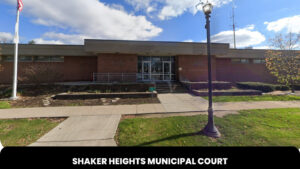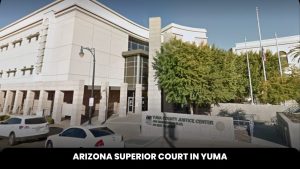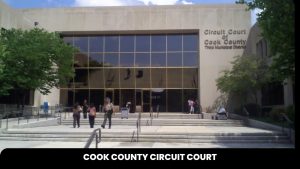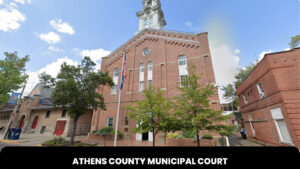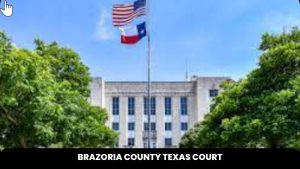D.C. District Court
Introduction
The United States District Court for the District of Columbia, more commonly known as the D.C. District Court, is a federal trial court with jurisdiction over the District of Columbia. As the district court for the U.S. capital, it handles a significant caseload of high-profile civil and criminal cases. The D.C. District Court has played an important role in the nation’s judiciary for over two centuries.
History of D.C. District Court
Creation and Early Years
The D.C. District Court was established by Congress through the Judiciary Act of 1801. It officially began operations on March 3, 1801. In its early decades, the court handled primarily local matters like real estate disputes, debt collection, and probate cases. Trials were held in temporary spaces until the Old City Hall courthouse opened in 1820.
Key Developments and Changes
In 1936, the court moved into the E. Barrett Prettyman Courthouse, its present-day headquarters. Over time, its caseload expanded to include more federal legal issues. After D.C. gained limited home rule in 1970, the D.C. Superior Court assumed responsibility for most local matters. This enabled the federal district court to focus on national cases.
Jurisdiction and Responsibilities
Types of Cases Handled
The D.C. District Court has jurisdiction over civil suits between citizens of different states, federal crime prosecutions, bankruptcy filings, patent and copyright cases, FOIA lawsuits, and complaints regarding federal agencies. It also handles a wide range of cases related to the federal government.
Geographic Boundaries
The D.C. District Court has jurisdiction over Washington, D.C. Unlike other federal district courts, it does not serve an entire state. However, its location in the nation’s capital expands its influence over legal matters with nationwide impact.
Leadership and Organization
Judges
The D.C. District Court currently has 15 district judges who are appointed by the president and confirmed by the Senate. There are also over 20 magistrate judges who handle preliminary criminal proceedings and other matters referred by district judges. The chief judge provides administrative oversight for the court.
Staff and Employees
The D.C. District Court utilizes federal court staff including clerks, deputy clerks, probation officers, pretrial services officers, court reporters, interpreters, librarians, IT specialists, and administrative support staff. The U.S. Marshals Service provides security services. There are over 300 employees total.
Courthouses and Locations
E. Barrett Prettyman Courthouse
Since 1936, the E. Barrett Prettyman Courthouse has served as the main location and headquarters of the D.C. District Court. The imposing neoclassical structure was named after a prominent D.C. lawyer and houses over 20 courtrooms, judges’ chambers, and administrative offices.
Other Locations
The D.C. District Court also utilizes courtrooms in the adjacent William B. Bryant Annex building. Some hearings are held at the National Courts Building for the U.S. Court of Appeals. Additionally, the D.C. Superior Court shares the Moultrie Courthouse.
Notable Cases
Famous Trials
The D.C. District Court has adjudicated many high-profile criminal trials involving political scandals (Watergate, Iran-Contra), espionage (Aldrich Ames, Robert Hanssen), and terrorism (9/11 co-conspirators). Other famous defendants include John Hinckley Jr., Marion Barry, John Walker Lindh, and Yolanda Saldívar.
Landmark Decisions
Historically, the D.C. District Court has shaped American law through cases like Brown v. Board of Education, Roe v. Wade, U.S. v. Nixon, and Boumediene v. Bush. More recently, it made key rulings on the Affordable Care Act, net neutrality, and climate change policy.
Court Operations and Proceedings
Filings and Dockets
The D.C. District Court receives around 12,000 new civil case filings per year. There are nearly 5,000 pending criminal cases. Electronic court records can be accessed through PACER. Media and the public can also request to view case files.
Rules and Practices
Proceedings generally follow the Federal Rules of Evidence and Civil/Criminal Procedure. However, the D.C. District Court also institutes its own Local Civil Rules and Local Criminal Rules. These outline specifics such as motion practice, jury selection, attorney conduct, and other court policies.
Role in the Community
The D.C. District Court operates the Attorney Admission Fund which provides grants to local legal service organizations. Its Probation Office partners with rehabilitation programs to serve formerly incarcerated individuals. Judges and staff actively participate in public education initiatives and mentoring in D.C.
Controversies and Issues
The D.C. District Court has faced controversies regarding lengthy judicial vacancies, heavy caseloads, sentencing disparities, high-dollar civil settlements, and other issues. Security at the courthouse is an ongoing concern, as is emergency preparedness for continuity of operations.
Conclusion
For over two centuries, the U.S. District Court for the District of Columbia has profoundly influenced American law and politics through its rulings. As the federal trial court in the nation’s capital, it continues to adjudicate landmark cases and carry out critical responsibilities within the judiciary. The D.C. District Court’s decisions will continue shaping history for generations to come.
FAQs
How many district judges serve on the D.C. District Court?
There are currently 15 district judge positions authorized by Congress for the D.C. District Court.
What is the Prettyman Courthouse named after?
The E. Barrett Prettyman Courthouse is named for lawyer E. Barrett Prettyman, who was appointed to the D.C. Circuit Court of Appeals in 1945.
What was the court’s most famous ruling?
The D.C. District Court’s most well-known ruling was probably Brown v. Board of Education in 1954, which ended segregation in public schools.
Does the D.C. District Court hear patent and copyright cases?
Yes, the D.C. District Court has a designated calendar to hear patent, copyright, and certain other intellectual property cases.
How can I access public records for a case in D.C. District Court?
Case documents can be viewed electronically through the Public Access to Court Electronic Records (PACER) system or in person at the courthouse.

